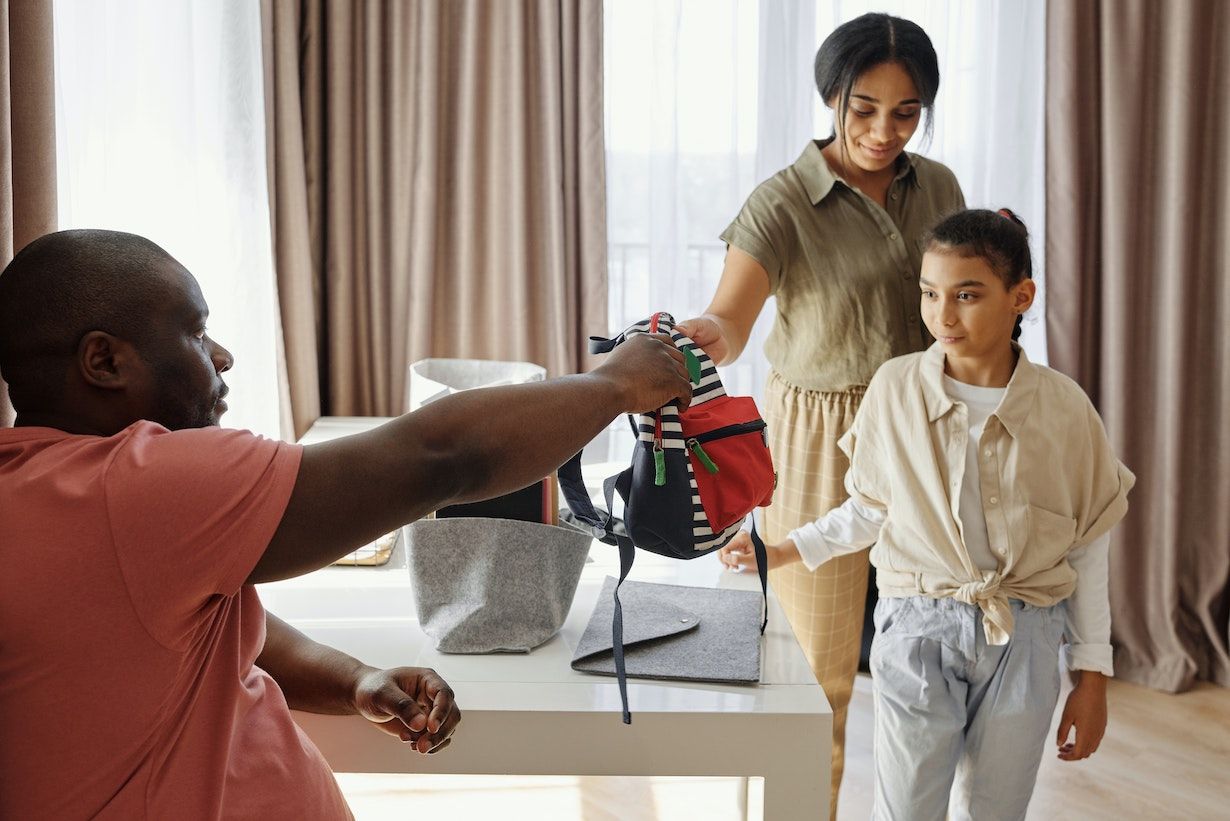The great divide: what to do when the sharing of parenting responsibilities isn’t equal
updated on Jun 6, 2023

While parenting may be one of the greatest jobs in the world, it’s common to feel overworked and under-recognised. Part of this comes from an unequal split in the division of responsibilities, which can impact your partnership and connection. But it’s time to get this relationship back on an even keel
Whether it’s tackling the school run, remembering to get more nappies, or helping with homework, being a parent isn’t just about the fun stuff. Surveys, such as a poll by the University of Chicago Harris School of Public Policy and the Associated Press-NORC Centre for Public Affairs Research, suggest that when we plan to start a family, most of us are intent on dividing parental responsibilities 50/50. But, despite these good intentions, it doesn’t often work out that way.
While there are now so many different types of families, many years ago, the traditional heterosexual family unit relied on mothers staying at home and taking on the overall parental responsibility. But things have changed, with the Office for National Statistics reporting the number of UK mums in work reached its highest level for 20 years in 2022, with 75% employed.
Even with both parents often working, the parenting load doesn’t always level out. Research shows that, while it will obviously vary with individuals, the parental load is still more often on mums. In fact, the most recent census showed mums who worked still spent more time on unpaid household work and childcare (averaging 252 minutes per day combined) than men (158 minutes combined).
But we can’t forget about the ‘mental load’ either. Parenting requires us to keep a huge amount of information in our brains, from tackling school emails to remembering you need to buy clothes in the next size up. In one in five heterosexual families, this load is equally shared, but in the majority it’s not, according to a study by the Australian Institute of Family Studies, with 78% of respondents saying the mental load was ‘always or usually’ left to the mother.
How does the parental labour divide affect relationships?
This split can impact both partners’ mental health, and even affect relationships, with half of couples arguing over parental responsibilities, according to a survey by ECLS-K. It’s also been linked to lower relationship satisfaction and wellbeing, with a report by children’s charity Bright Horizons finding that 52% of mothers face burnout due to the additional responsibilities on their shoulders.
“All too often, the burden of parenting responsibilities falls on one person, and this can lead to resentment, frustration, and an increase in arguments,” says wellbeing consultant and therapist Claire Elmes.
This may also be heightened when one parent takes on the role of stay-at-home parent and feels as if they get no break, or aren’t appreciated.
“When one parent works more than the other, or one stays at home, the arguments can start about whose day was more difficult,” Claire adds. “The job of parenting is 24/7, and your brain rarely gets a rest, yet it goes unpaid, unrecognised, and under-appreciated. We need to recognise that raising children is just as tiring as a nine-to-five, and that it is a job in its own right.”

How can we address the parental relationship divide?
Recognise the divide
The good news is that both partners simply recognising that the parental divide exists, and is a problem, can be a really positive step. “It’s essential for a healthy relationship that we learn to appreciate each other, and acknowledge the division of labour, so that each party feels recognised,” says Claire.
Much of parenting is the ‘little things’ that the other partner might not notice. For example, the parent who takes on the school run is automatically bombarded with letters and updates. Start with calmly getting together and making a list of both your current responsibilities. Seeing it in black and white can really help to make it clear that the labour isn’t split fairly.
Work out a system that’s fair to both parties
This can help you communicate in a factual way, rather than being emotionally-charged. Think ‘At the moment, I pack the kids’ bags before school and sort breakfast – so if you prepare those the night before, I can take over in the morning,’ rather than ‘I do everything and you never help.’
It’s also about working together to figure out what might be a stress trigger, and how you can support each other.
“Verbalising how you feel can start the process of healthy communication, but it is important to listen, too. It might be helpful for couples to label the times of the day they feel most stressed, and work out a system between them. If one parent gets the children ready for bed, can the other pick up the toys and get the pyjamas ready? If one parent feels that their head is foggy after work, can they take the children out for a short walk while the other has space to breathe? See if your routine has wiggle room, and focus on alleviating stress for each other,” says Claire.
Find the right time to communicate
The idea is to discuss things before the arguments begin. But if you find things getting heated, take a step back. In the middle of bath time or on the school run is not the ideal time to air your grievances.
“It’s important to communicate concerns when both parents feel safe, and can regulate their emotions,” Claire explains. “In the heat of the moment, it might be best to revisit the situation when the children are in bed, or playing in another room. Verbalising that you feel stressed and unable to explain yourself, but would like to resume the conversation later can give you both time to reflect.”

Appreciate each other’s contributions
Whether you’re a stay-at-home parent or in work, you can find yourself dismissing your partner’s situation. If your partner stays at home, you might think they can’t possibly understand the stress of a commute and workplace dilemmas. If it’s you that takes on more childcare, you may resent your partner being out of the house most of the day (and being able to drink a cup of tea in peace!).
“Verbalise that you recognise your partners work, and are thankful for the way they raise your children. Believe that their day was difficult, and ask them if they want to talk about it – sometimes all it takes is a listening ear,” says Claire.
If it’s you that’s out nine-to-five, then don’t head straight to the sofa when you arrive home, however tempting it might be. “Do something when you get home that you know they will appreciate. A hot cup of tea, unloading the dishwasher, taking out the bin without being asked, or even just playing with the children, can give them one less thing to think about, and will bring you closer as a team. It’s all about recognition and working together. It shouldn’t just be helping when asked, but taking initiative and being a team.”
An unequal division of parenting load is a common problem. But being open, appreciative, and willing to negotiate can help you find a proper balance that works for both you and your partner.
Claire Elmes is a wellbeing consultant and therapist.Visit the Counselling
Directory to visit her profile and find out more.

